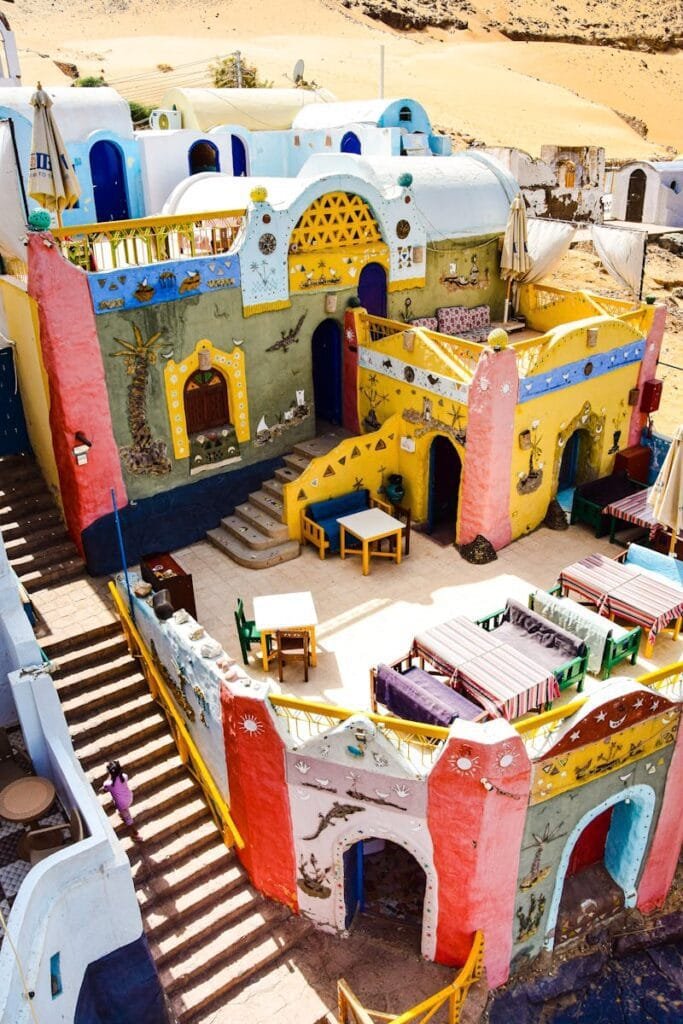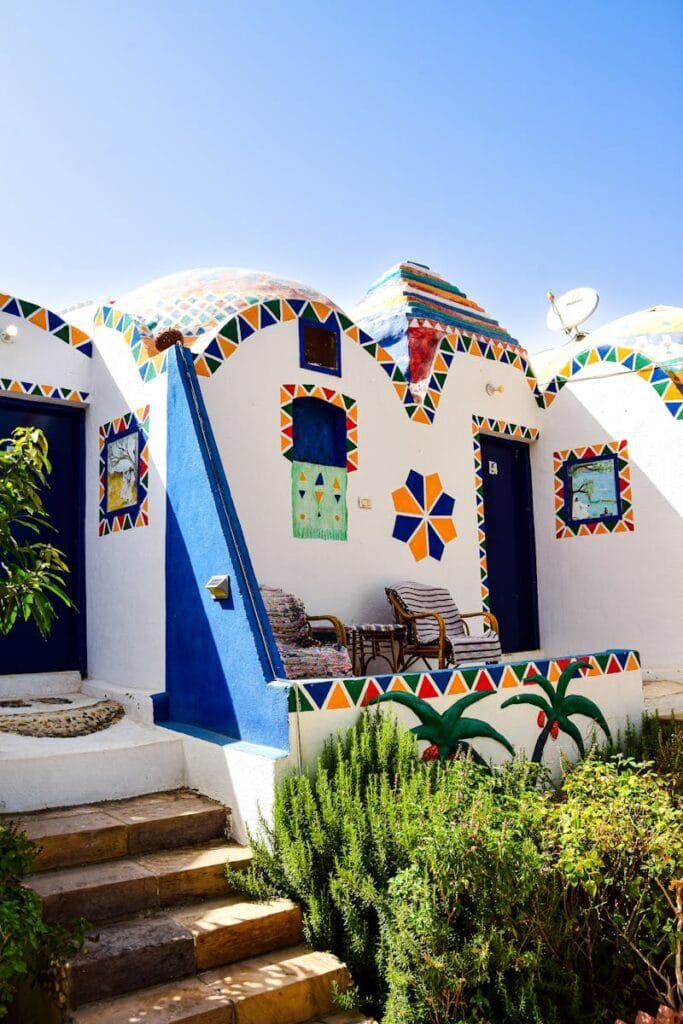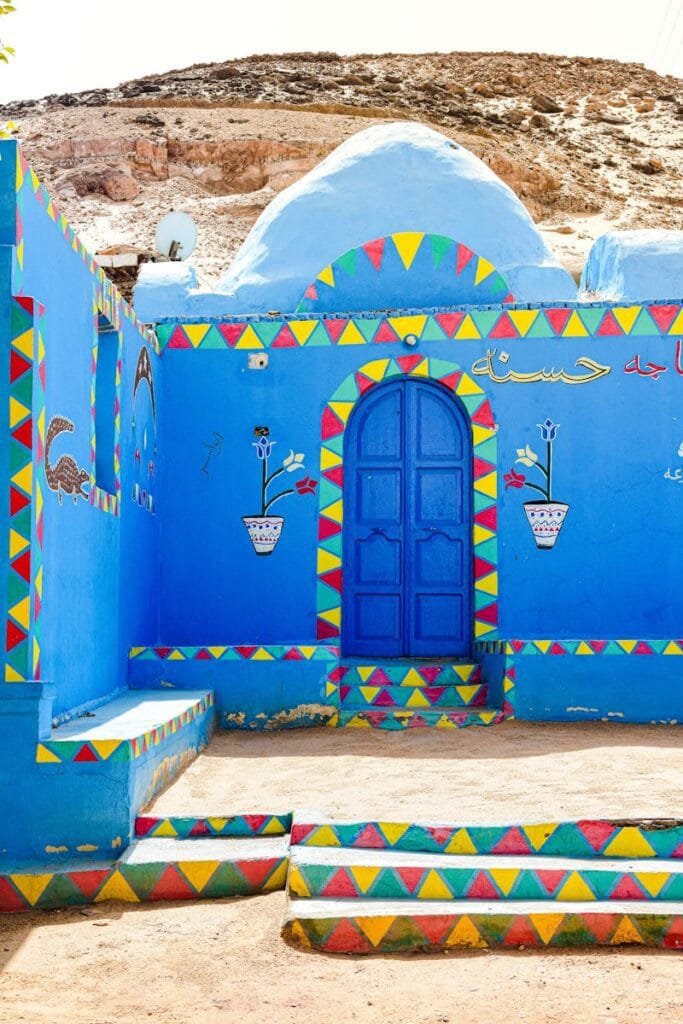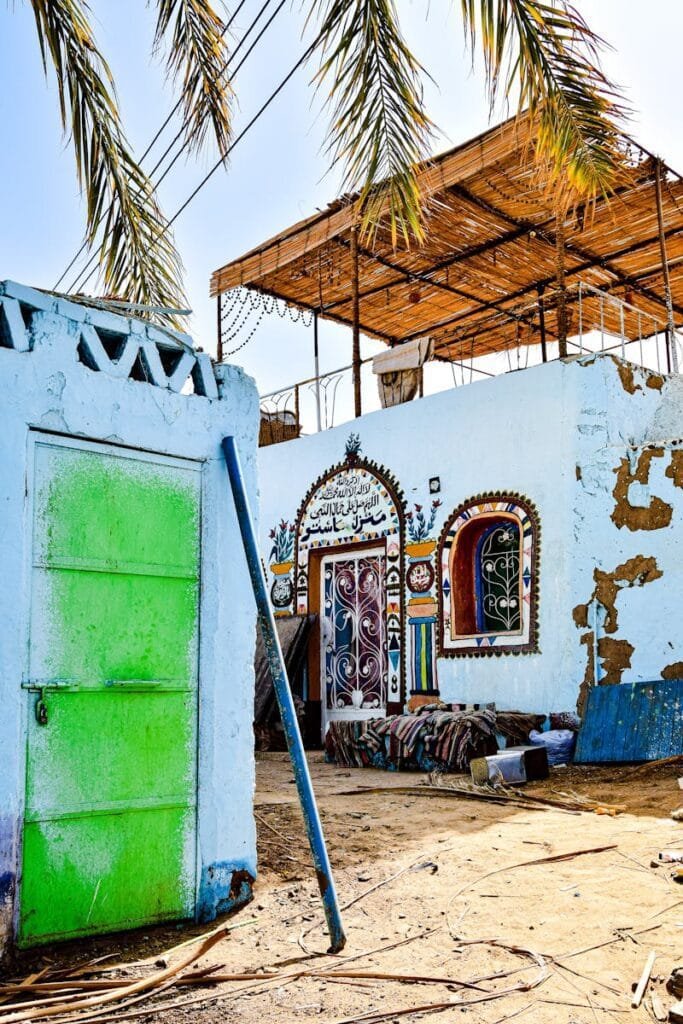The Nubian Villages are a unique and vibrant part of Egypt’s cultural heritage, deeply rooted in the history of the Nubian people who have lived along the banks of the Nile River for thousands of years. Stretching from southern Egypt into Sudan, the Nubians have a rich cultural legacy, including their own distinct language, music, and customs. These villages, particularly those located in the southern part of Egypt, are a testament to the enduring traditions of a people who have survived the challenges of time, geography, and displacement.
Before the construction of the Aswan High Dam in the 1960s, the Nubians lived along the Nile in what is now submerged land beneath the waters of Lake Nasser. The construction of the dam created Lake Nasser, flooding large areas of Nubian settlements, which led to the relocation of many Nubian families. As a result, the Nubian people were displaced from their ancestral lands. However, despite these challenges, the Nubians managed to preserve their traditions and rebuild their villages in new locations. Today, these villages offer visitors a chance to experience Nubian culture, architecture, and hospitality, offering a glimpse into a civilization that has shaped Egypt’s southernmost regions for millennia.








